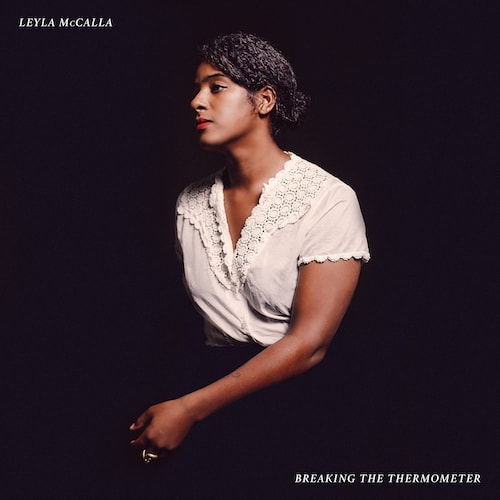Leyla McCalla
Breaking The Thermometer
Anti-
2022

The history of Haiti in the late part of the twentieth century is clouded by corruption, political mismanagement and violence. A series of oppressive regimes saw the Creole-speaking majority stigmatised and their freedom of expression curtailed. French- and American-backed governments used imprisonment, torture and murder as forms of political control. Those in media and the arts were essentially forced to keep in line or face dire consequences. One of the few dissenting voices to consistently challenge the status quo was Radio Haiti, the nation’s only Creole-language radio station, which assumed its pro-democracy stance in 1968 and, despite various attacks and temporary closures, continued until 2003, three years after the assassination of its influential owner Jean Dominique.
Haitian-American musician Leyla McCalla’s latest album is a tribute to Dominique and his wife and fellow journalist Michéle Montas and an impassioned defence of democracy in present-day Haiti. In McCalla’s hands, these songs – a combination of original and traditional material – also become a kind of quest towards personal understanding, an attempt to claim a heritage from a political administration that would seek to deny that heritage. McCalla’s singing is soft but powerful, and she is an accomplished banjo player and cellist. The mostly Creole-language songs seem richly textured despite their minimal musical accompaniment. Field recordings and conversational snippets lend an earthiness to the opening track Nan Fon Bwa. When you realise that these conversations are taken from Radio Haiti’s archives and display a stirring sense of national identity and dignity, it gives the music an urgent edge, a sense that something necessary and difficult is being expressed.
There are moments of pain all over Breaking The Thermometer. Fort Dimanche details a notorious political prison and exposes the tortures and unlawful deaths that occurred there. But there are moments of hope too: the same song’s defiantly bouncy banjo backs an account of a journalist who chose his profession in order to help redress the balance in favour of truth and human rights. Le Bal Est Fini is full of sprightly, jazzy percussion, a perfect counterpoint to McCalla’s disarmingly direct vocal style. Dan Reken, meanwhile, is sombre and yearning, while Pouki is almost inexpressibly tender, and Vini Wè is a beautiful meditation on the loving relationship shared by Jean Dominique and his wife, Michéle Montas.
Haitian musical heritage is rich and uniquely mixed: a song like Dodinin displays Afro-Caribbean rhythmic influences as well as melodic traces of Latin and French vernacular music, while elsewhere, McCalla’s own immersion in American folk, jazz and blues makes itself apparent, and Artibonite’s percussive lilt owes something to New Orleans. One of the album’s few English-language songs is a cover of the great Brazilian Caetano Veloso’s You Don’t Know Me, which injects an unexpected burst of psychedelia into proceedings. Dreamy, soft-focus folk makes an appearance on the lovely Memory Song, full of plashing cymbals and lightly-plucked strings, and there are even elements of modern composition in the way some of these songs are framed.
Breaking The Thermometer is part of a larger project that includes a theatrical release and was commissioned by Duke University in North Carolina, but at no point does it feel either incomplete or overly academic. It is an extremely intelligent album, but it is also a warm, hopeful, angry, questioning one.
Leyla McCalla – “Dodinin” (Live Session)
Leyla McCalla – The Story Behind the Song: “Dodinin”
Order Breaking The Thermometer: Bandcamp | Rough Trade | Norman Records
Explore the Radio Haiti Archive
https://repository.duke.edu/dc/radiohaiti
